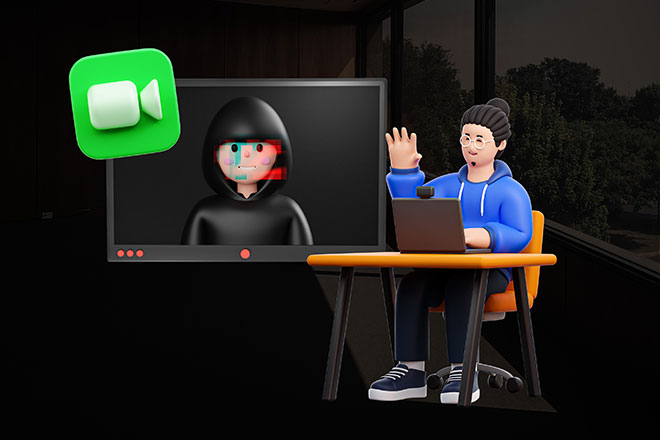Don’t take everything you see (and hear) for real
Thanks to artificial intelligence, faces can be digitally faked so realistically that they are almost indistinguishable from the original. Attackers utilise Deepfakes to obtain sensitive information via video calls or to provoke malicious actions.
The faces of people who are known in the company and with whom the callers have dealings are faked. Because:
The visible identity of a known person is not normally questioned.

Correct behaviour protects
As Deepfakes are becoming more and more perfect, your employees will unfortunately hardly be able to recognise a fake identity as such. Fortunately, even with this form of attack, a few rules of behaviour are enough to avoid playing into the hands of the attackers.
Do your employees know these rules of behaviour and do they apply them when the boss is standing in front of them?
Phishing simulation via Deepfakes
Swiss Infosec AG’s new “Phishing simulation using Deepfakes” service analyses whether attacks using Deepfakes would be successful in the company. We create a Deepfake of a known person in the company, e.g. the CEO or CFO, for video calls and determine the course of the simulation together with the company. The results of this simulation then serve as a basis for specifically sensitising employees to such and similar phishing attacks.
Your benefit
- You will learn,
- how resilient your employees are to Deepfake attacks
- how well your requirements regarding confidentiality (e.g. information via digital media) are implemented
- whether it is clear what is meant by sensitive or confidential information
- You recognise the need for further awareness-raising measures.
- You reduce the risk of your company falling victim to a cyberattack.
Speaking of phishing
In addition to phishing simulation using Deepfakes, we also offer the following social engineering services and other related services on this topic:
- Phishing simulation via e-mail or SMS
- Phishing simulation by telephone
- Simulated hacker attack with USB stick
- Social engineering on site
- Live hacking
- eLearning modules on phishing by e-mail, SMS and telephone
- eLearning modules on the topic of social engineering



